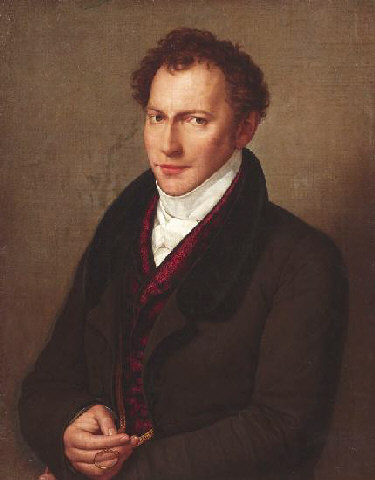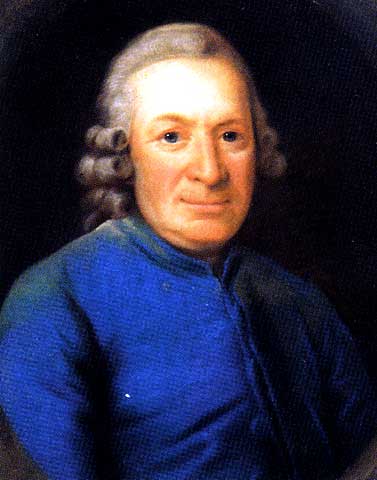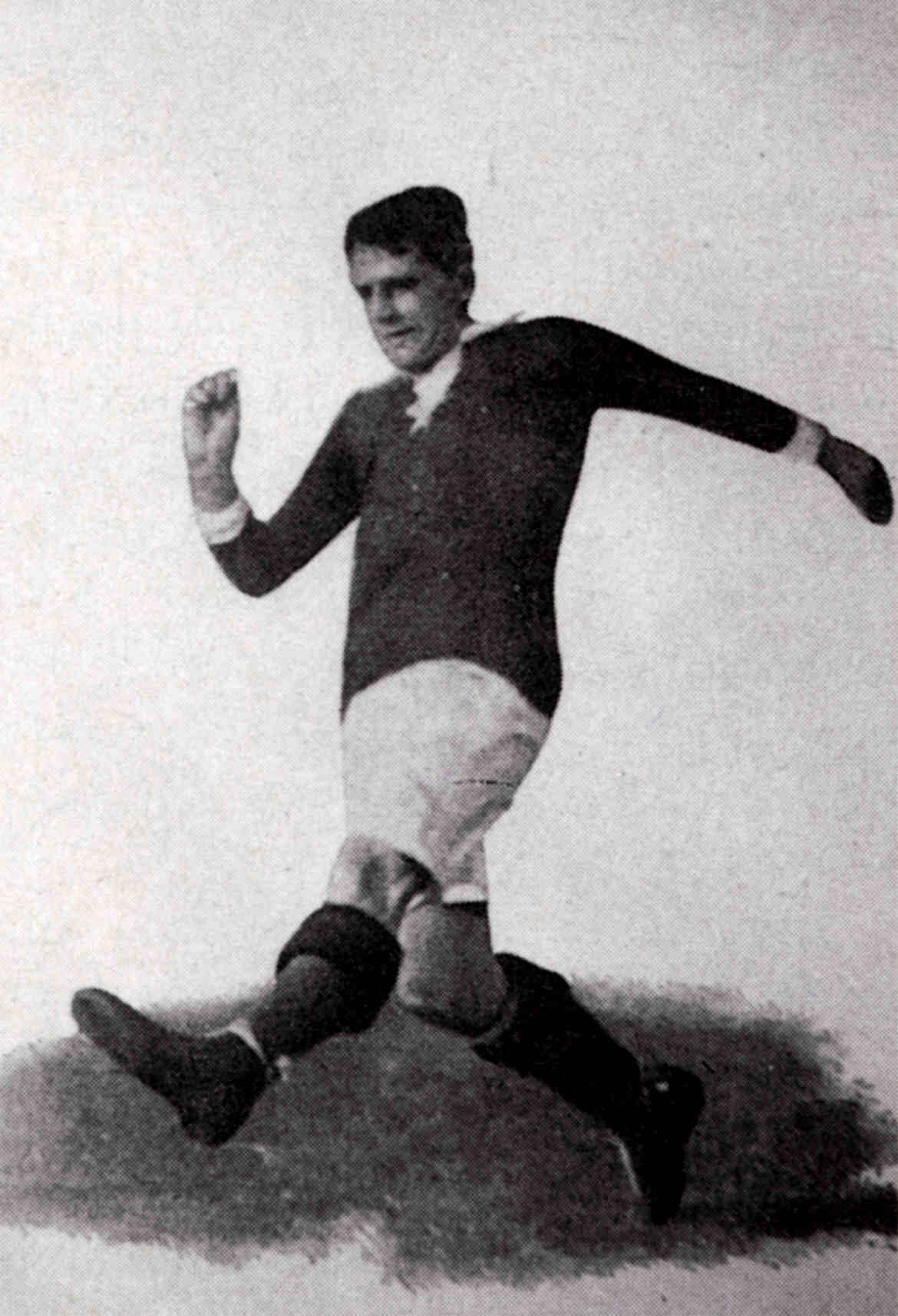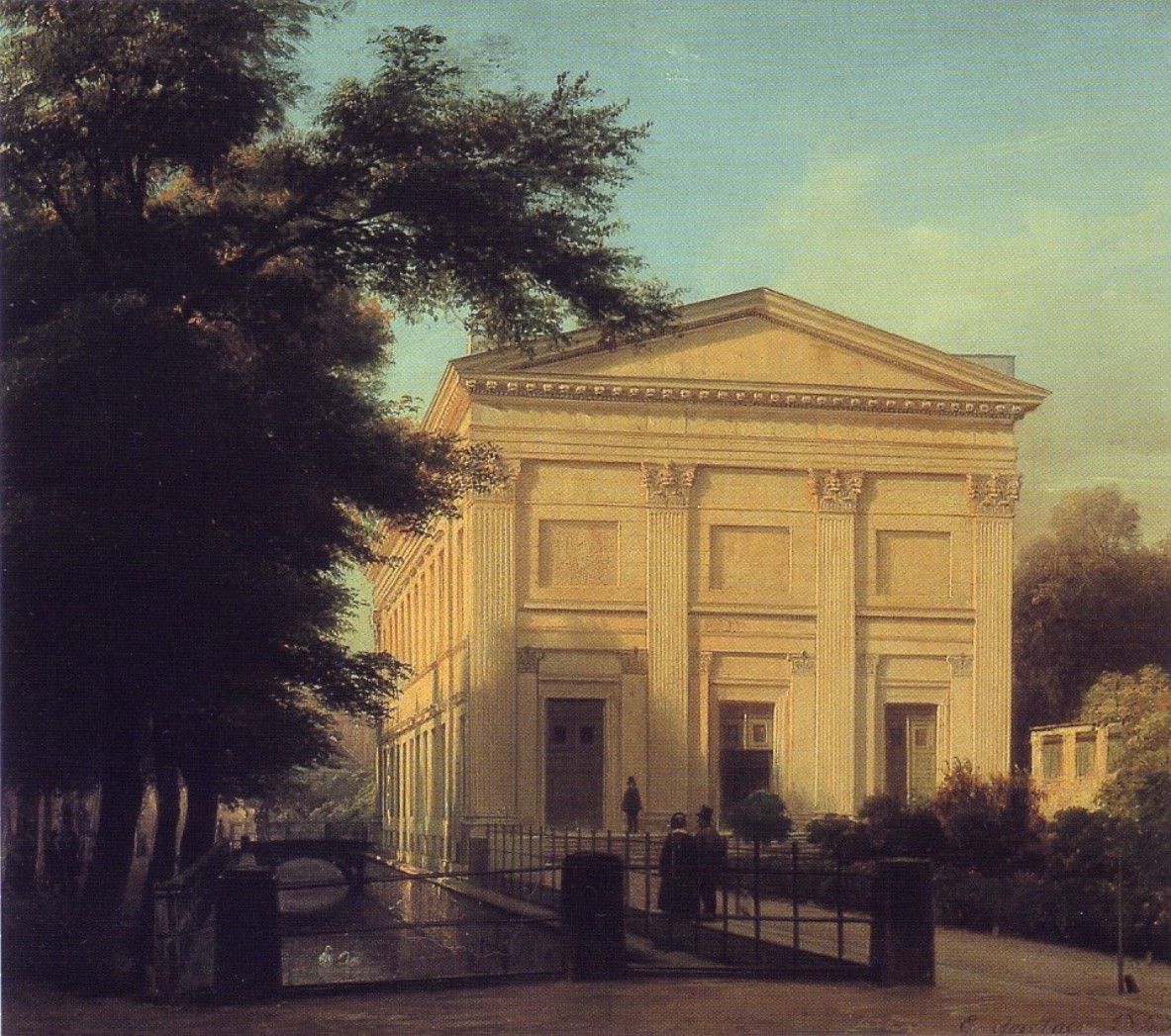|
Itzig Family
Many of the thirteen children of Daniel Itzig and Miriam Wulff, and their descendants and spouses, had significant impact on both Jewish and German social and cultural (especially musical) history. Notable ones are set out below. Daniel Itzig (1723–1799) Bella Itzig (1749–1824) Married Levin Jacob Salomon. Their son Jakob Salomon (1774–1825) converted to Christianity and took the surname ''Bartholdy'', and was for a time Prussian consul in Italy. Their daughter Lea (1777–1842) married Abraham Mendelssohn (1776-1835; the son of Moses Mendelssohn). Lea and Abraham's children were Felix Mendelssohn and Fanny Mendelssohn. (Jakob persuaded Abraham Mendelssohn to adopt the Bartholdy surname.) It was Bella who, "unaware of Felix's baptism", gave a manuscript of Bach's '' St. Matthew Passion'' to her grandson Felix Mendelssohn in 1824.Jeffrey S. Sposato, ''The Price of Assimilation: Felix Mendelssohn and Nineteenth-Century Anti-Semitic Tradition'' (Oxford University Press, 2005), ... [...More Info...] [...Related Items...] OR: [Wikipedia] [Google] [Baidu] |
Jakob Salomon Bartholdy
__NOTOC__ Jakob Ludwig Salomon Bartholdy (13 May 1779 – 27 July 1825) was a Prussian diplomat and art patron. Life He was born Jakob Salomon in Berlin of Jewish parentage. His father was Levin Jakob Salomon and his mother was Bella Salomon, née Itzig_family#Bella_Itzig_(1749%E2%80%931824), Bella Itzig. Jakob was educated at the University of Halle. He took the additional surname 'Bartholdy' from a property owned by his family on his conversion to Reformed Christianity. Bartholdy fought in the Austrian army against Napoleon I of France, Napoleon, afterward entered the diplomatic service of Prussia, and accompanied the Allied armies to Paris in 1814, whence he was dispatched to Rome in the following year as Prussian Consul-General. He was a great patron of the arts. The revival of fresco painting amongst young German artists in Italy was due largely to his patronage. A group of artists composed of Johann Friedrich Overbeck, Peter von Cornelius, Philipp Veit, and Friedrich Wilhe ... [...More Info...] [...Related Items...] OR: [Wikipedia] [Google] [Baidu] |
Daniel Itzig
Daniel Itzig (also known as Daniel Yoffe 18 March 1723 in Berlin – 17 May 1799 in Potsdam) was a Court Jew of Kings Frederick II of Prussia, Frederick II the Great and Frederick William II of Prussia, Frederick William II of Kingdom of Prussia, Prussia. Biography Itzig was born in Berlin. His Itzig family, family was mercantile. Itzig was a banker and a mintmaster in partnership with Veitel Heine Ephraim. Together they leased all the Mint (coin), mints in Saxony and Prussia. During the Seven Years' War they assisted Frederick the Great in debasing the Saxonian currency and spreading the Ephraimiten, not only in Saxony, but also in Silesia, Poland, Bohemia and Courland. Itzig was one of the very few Jews in Prussia to receive full citizenship privileges, as a "Useful Jew". He became extraordinarily wealthy as a consequence. Together with his son in law David Friedlander, Itzig was appointed to lead a committee which was to discuss ways to improve the Jewish civil and social ... [...More Info...] [...Related Items...] OR: [Wikipedia] [Google] [Baidu] |
Mozart
Wolfgang Amadeus Mozart (27 January 17565 December 1791), baptised as Joannes Chrysostomus Wolfgangus Theophilus Mozart, was a prolific and influential composer of the Classical period (music), Classical period. Despite his short life, his rapid pace of composition resulted in more than List of compositions by Wolfgang Amadeus Mozart, 800 works of virtually every genre of his time. Many of these compositions are acknowledged as pinnacles of the symphony, symphonic, concerto, concertante, chamber music, chamber, operatic, and choir, choral repertoire. Mozart is widely regarded as among the greatest composers in the history of Western music, with his music admired for its "melodic beauty, its formal elegance and its richness of harmony and texture". Born in Prince-Archbishopric of Salzburg, Salzburg, in the Holy Roman Empire, Mozart showed prodigious ability from his earliest childhood. Already competent on Keyboard instrument, keyboard and violin, he composed from the age of fi ... [...More Info...] [...Related Items...] OR: [Wikipedia] [Google] [Baidu] |
List Of German Jews
The first Jewish population in the region to be later known as Germany came with the Romans to the city now known as Cologne. A "Golden Age" in the first millennium saw the emergence of the Ashkenazi Jews, while the persecution and expulsion that followed the Crusades led to the creation of Yiddish and an overall shift eastwards. A change of status in the late Renaissance Era, combined with the Jewish Enlightenment, the Haskalah, meant that by the 1920s Germany had one of the most integrated Jewish populations in Europe, contributing prominently to German culture and society. During The Holocaust many Jews fled Germany to other countries for refuge, and the majority of the remaining population were killed. The following is a list of some famous Jews (by religion or descent) from Germany proper. Historical figures Politicians * Fischel Arnheim, politician * Ludwig Bamberger, politician * Daniel Cohn-Bendit, member of European Parliament, student leader in 1968 * Wilhelm Drösch ... [...More Info...] [...Related Items...] OR: [Wikipedia] [Google] [Baidu] |
Mendelssohn Family
The Mendelssohn family are the descendants of Mendel of Dassau. The German Jewish philosopher Moses Mendelssohn and his brother Saul were the first to adopt the surname Mendelssohn. The family includes his grandson, the composer Felix Mendelssohn and his granddaughter, the composer Fanny Mendelssohn. Moses Mendelssohn Moses Mendelssohn was a significant figure in the Age of Enlightenment in Germany. Mendelssohn had ten children, of whom six lived to adulthood. Of those six children, only Recha and Joseph retained the Jewish religion. Abraham Mendelssohn, because of his conversion to Reformed Christianity, adopted the surname Bartholdy at the suggestion of his wife's brother, Jakob Salomon Bartholdy, who had adopted the name from a property owned by the Salomon family. Mendelssohn's wife, Fromet (Frumet) Guggenheim, was a great-granddaughter of Samuel Oppenheimer. Mendelssohn & Co. Bank In 1795 Moses Mendelssohn's eldest son Joseph established the bank Mendelssohn & Co. in Ber ... [...More Info...] [...Related Items...] OR: [Wikipedia] [Google] [Baidu] |
Sing-Akademie Zu Berlin
The Sing-Akademie zu Berlin, also known as the Berliner Singakademie, is a musical (originally choral) society founded in Berlin in 1791 by Carl Friedrich Christian Fasch, harpsichordist to the court of Prussia, on the model of the 18th-century London Academy of Ancient Music. Early history The origins of the Singakademie are difficult to discern because the group was initially intended as a private gathering of music lovers and only later became a public institution. The Singakademie grew out of a small circle of singers who met regularly in the garden house of the privy councillor Milow. Their weekly meetings seemed to have resembled those of the then popular ''Singethees.'' Carl Friedrich Zelter describes them as rather informal meetings: "One gathered in the evening, drank tea, spoke, talked, in short entertained oneself; and the matter itself was only secondary." Singer and songwriter Charlotte Caroline Wilhelmine Bachmann was one of the original founding members. Until the ... [...More Info...] [...Related Items...] OR: [Wikipedia] [Google] [Baidu] |
Carl Friedrich Zelter
Carl Friedrich Zelter (11 December 1758 15 May 1832)Grove/Fuller-Datei:Carl-Friedrich-Zelter.jpegMaitland, 1910. The Zelter entry takes up parts of pages 593-595 of Volume V. was a German composer, conductor and teacher of music. Working in his father's bricklaying business, Zelter attained mastership in that profession, and was a musical autodidact. Zelter was born and died in Berlin. He became friendly with Johann Wolfgang von Goethe, and his works include settings of Goethe's poems. During his career, he composed about two hundred lieder, as well as cantatas, a viola concerto (performed as early as 1779) and piano music. Amongst Zelter's pupils (at different times) were Felix Mendelssohn, Fanny Mendelssohn, Giacomo Meyerbeer, Eduard Grell, Otto Nicolai, Johann Friedrich Naue, and Heinrich Dorn. Felix Mendelssohn was perhaps Zelter's favorite pupil and Zelter wrote to Goethe boasting of the 12-year old's abilities. Zelter communicated his strong love of the music of J. S. B ... [...More Info...] [...Related Items...] OR: [Wikipedia] [Google] [Baidu] |
Carl Philipp Emanuel Bach
Carl Philipp Emanuel Bach (8 March 1714 – 14 December 1788), also formerly spelled Karl Philipp Emmanuel Bach, and commonly abbreviated C. P. E. Bach, was a German Classical period musician and composer, the fifth child and second surviving son of Johann Sebastian Bach and Maria Barbara Bach. C. P. E. Bach was an influential composer working at a time of transition between his father's Baroque style and the Classical style that followed it. His personal approach, an expressive and often turbulent one known as ' or 'sensitive style', applied the principles of rhetoric and drama to musical structures. His dynamism stands in deliberate contrast to the more mannered galant style also then in vogue. To distinguish him from his brother Johann Christian, the "London Bach", who at this time was music master to Queen Charlotte of Great Britain, C. P. E. Bach was known as the "Berlin Bach" during his residence in that city, and later as the "Hamburg Bach" when he suc ... [...More Info...] [...Related Items...] OR: [Wikipedia] [Google] [Baidu] |
Wilhelm Friedemann Bach
Wilhelm Friedemann Bach (22 November 17101 July 1784), the second child and eldest son of Johann Sebastian Bach and Maria Barbara Bach, was a German composer and performer. Despite his acknowledged genius as an organist, improviser and composer, his income and employment were unstable and he died in poverty. Life Wilhelm Friedemann (hereafter Friedemann) was born in Weimar, where his father was employed as organist and chamber musician to the Duke of Saxe-Weimar. In July 1720, when Friedemann was nine, his mother Maria Barbara Bach died suddenly; Johann Sebastian Bach remarried in December 1721. J. S. Bach supervised Friedemann's musical education and career with great attention. The graded course of keyboard studies and composition that J. S. Bach provided is documented in the ''Clavier-Büchlein vor Wilhelm Friedemann Bach'' (modern spelling: '' Klavierbüchlein für Wilhelm Friedemann Bach''), with entries by both father and son. This education also included (parts of) ... [...More Info...] [...Related Items...] OR: [Wikipedia] [Google] [Baidu] |
Ignaz Moscheles
Isaac Ignaz Moscheles (; 23 May 179410 March 1870) was a Bohemian piano virtuoso and composer. He was based initially in London and later at Leipzig, where he joined his friend and sometime pupil Felix Mendelssohn as professor of piano at the Conservatory. Life Early life and career Moscheles was born 1794 in Prague, Bohemia, the son of Klara Popper (Lieben) and Joachim Moises Moscheles. He was from an affluent German-speaking Jewish merchant family. His first name was originally Isaac. His father played the guitar and was keen for one of his children to become a musician. Initially his hopes fixed on Ignaz's sister, but when she demurred, her piano lessons were transferred to her brother. Ignaz developed an early passion for the (then revolutionary) piano music of Beethoven, which the Mozartean Bedřich Diviš Weber, his teacher at the Prague Conservatory, attempted to curb, urging him to focus on Bach, Mozart and Muzio Clementi. After his father's early death, Moscheles se ... [...More Info...] [...Related Items...] OR: [Wikipedia] [Google] [Baidu] |
Arnstein (onomastics)
Arnstein () is a town in the Main-Spessart, Main-Spessart district in the ''Regierungsbezirk'' of Lower Franconia (''Unterfranken'') in Bavaria, Germany. Geography Location The town lies on the banks of the river Wern and is roughly 20 km from Schweinfurt and 25 km from Würzburg. Constituent communities Arnstein's ''Ortsteil, Stadtteile'' are: History Town rights were granted in 1333 by Emperor Louis IV, Holy Roman Emperor, Louis the Bavarian. The former ''Amt (country subdivision), Oberamt'' of the Prince-Bishopric of Würzburg was in Bavaria's favour Secularization, secularized and passed in 1805 to Grand Duke Ferdinand III, Grand Duke of Tuscany, Ferdinand of Tuscany to form the Grand Duchy of Würzburg. Population development * 1961: 7943 * 1970: 8403 * 1987: 7640 * 1995: 8092 * 2005: 8345 * 2010: 8090 * 2015: 8161 Politics Mayor *1972-2002: Roland Metz (CSU) *2002-2014: Linda Plappert-Metz (CSU) *2014–2019: Anna Stolz (independent) *2 ... [...More Info...] [...Related Items...] OR: [Wikipedia] [Google] [Baidu] |
Bernhard Von Eskeles
Bernhard, Knight and Baron von Eskeles (german: Bernhard ''Ritter und Freiherr von Eskeles'') (12 February 1753, Vienna – 7 August 1839, Hietzing (near Vienna, now Vienna)) was an Austrians, Austrian-Austrian Jews, Jewish banker/financier and Court Jew. He was born Bernhard Eskeles, the posthumous son of Rabbi Issachar Berush Eskeles, son of the Poland, Polish-Moravian Rabbi Gabriel Eskeles. At an early age he went to Amsterdam, where he entered a commercial house, of which he became manager at the age of 17, but met with reverses, and lost the fortune which his father had left to him. In 1774 he returned to Vienna, married Caecilie (Zipperche) Itzig (1760–1836), a daughter of Daniel Itzig of Berlin, and joined in partnership and entered the business of his brother-in-law Fanny von Arnstein, Nathan Arnstein, with whom he established the banking-house of ''Arnstein and Eskeles'', which came into great prominence during the Congress of Vienna. They were patrons of Wolfgang Amad ... [...More Info...] [...Related Items...] OR: [Wikipedia] [Google] [Baidu] |








